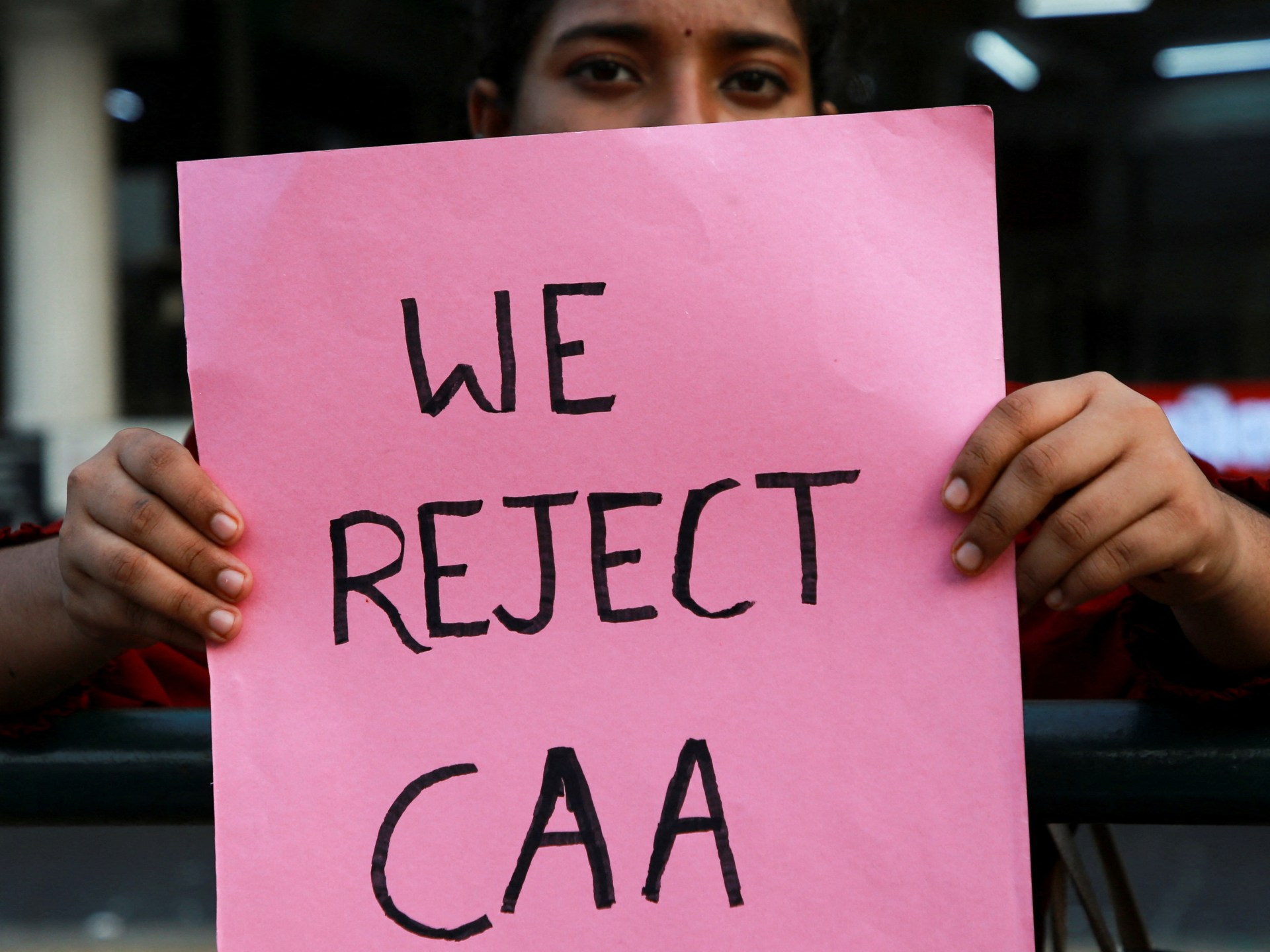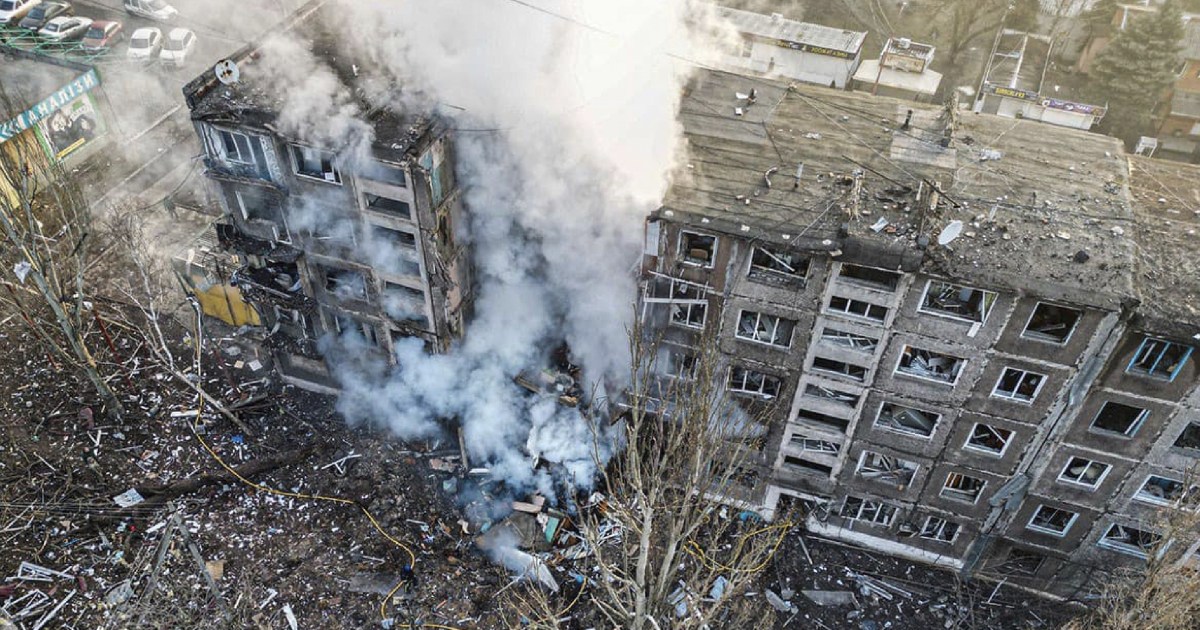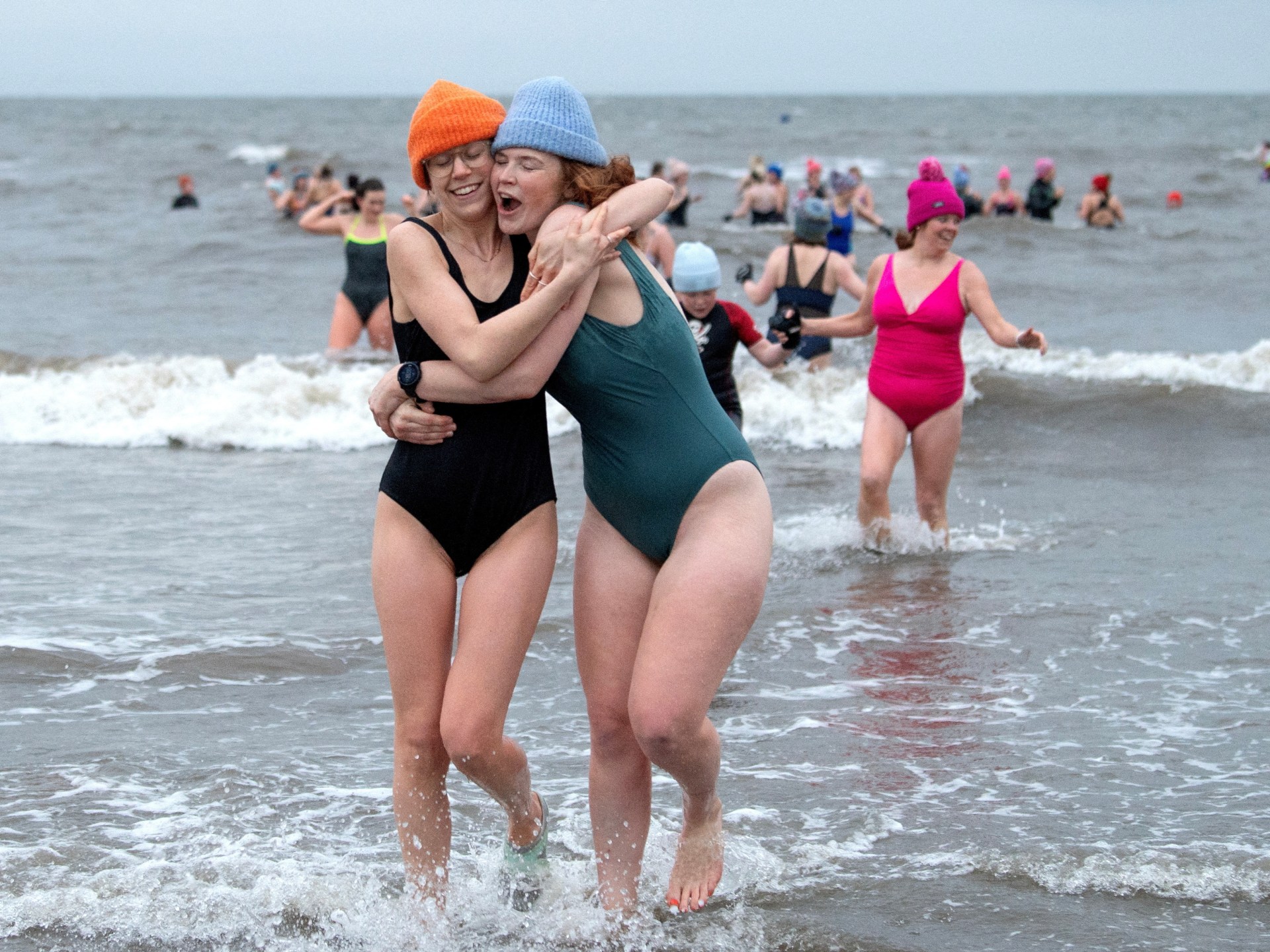‘Never giving up’: A former Afghan refugee’s mission to heal trauma | Refugees
Chester, United Kingdom – It is just after 8:30am on a Friday and 40-year-old Waheed Arian is cycling down a path next to a frost-covered football field in the northwestern English city of Chester.
His cheeks are slightly flushed as he hops off his bike, and he seems sprightly despite having caught only a few hours of sleep.
During the week, he often works into the early hours of the morning running his two digital health charities, and he spends most weekends at the A&E (accident and emergency) ward of his local hospital where he works as an emergency doctor.
As Waheed locks up his bike, personal trainer Andy Royle walks up to him.
“Good to see you, Andy,” Waheed says.
The two men stretch, then run laps around the field. Despite the freezing weather, Waheed is enthusiastic. Physical activity has helped him cope with the most trying times in his life.
“In Afghanistan, when I was young, I used to do taekwondo and imitated the moves that Bruce Lee and Jackie Chan did in their movies. I fell down a lot,” he tells Andy laughing as they finish their workout.
Now Waheed, a former refugee, is helping others overcome adversity by drawing on his personal experience of surviving war-related trauma to advocate for and deliver mental health services to refugees.
Finding strength
Waheed’s calm demeanour belies a difficult past.
He was born in 1983 in the Afghan capital Kabul during the Soviet-Afghan War (1979-1989) when the Soviet-controlled government fought the US-backed Mujahideen for control over the country.
Waheed is the eldest son in a Pashtun family of 11 children. His father bought and sold antiques and traded currency at a bazaar, while his mother was a housewife.
As a child, he remembers being unable to sleep at night, terrified by the sounds of government planes and helicopters being fired at near his house. The government soldiers and tanks on the streets frightened him and he remembers wondering if they would shoot him.
“I only have two happy memories from my childhood during the 1980s,” says the softly spoken Waheed. “One was being taken by my mother to a local park to have ice cream.” The second was when his father gave him a kite.
When he was older, he remembers hours-long shelling in the capital preventing his family from venturing out. At times they went without food or water. When Waheed did go out to buy necessities for the family, he would see dead bodies lying on the streets and if a gun battle erupted, he would have to throw himself into a gutter to avoid being hit. Once, while cycling home, a missile hit a house in his neighbourhood and sent him flying, though he wasn’t badly injured.
Waheed’s childhood and teenage years were marked by anxiety and nightmares, which he would later learn were symptoms of PTSD (post-traumatic stress disorder). But during those years, he also began associating exercise with resilience. When he was 11, his family was internally displaced to the rural province of Logar. “I had a really depressive episode then, and lost all my energy because I couldn’t sleep or eat,” Waheed recalls.
On a particularly difficult day, he decided on a whim to go for a run. Afterwards, he felt a bit better. “So I decided that I would keep doing it,” he says.
Then he started looking at famous sportspeople for inspiration, including the boxer Muhammad Ali and his story of surviving a tough childhood. He began taekwondo and started running regularly. Exercise gave him the strength to dream of a different future, he says.
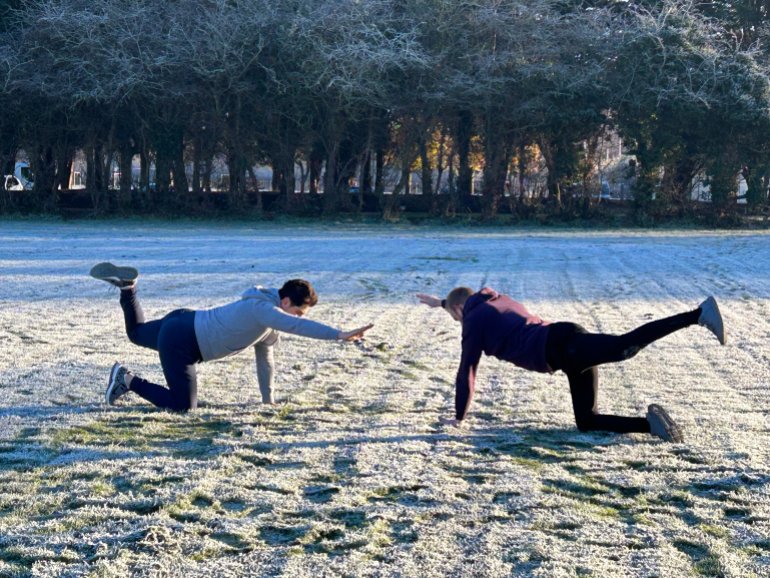
Arian Wellbeing
In August this year, Waheed set up Arian Wellbeing to help address refugees’ mental health needs.
Working alongside 20 clinical psychologists and therapists, as well as five fitness professionals like Andy, Waheed and his team are piloting tailored therapy and exercise in group and one-on-one sessions with refugees in Chester, his home for the past nine years.
They aim to provide the service for free to people who don’t have a stable income or accommodation via a scheme that accepts payment from participants who are not experiencing financial difficulty. They provide both in-person and digital sessions.
With 22.1 percent of conflict-affected populations suffering from issues such as depression, anxiety and PTSD – compared to the global average of 12.5 percent – Waheed believes refugees’ mental health remains a widely underserved need.
“These are people who have overcome so many adversities, faced traumas over many years that are not understood,” he says.
Waheed believes that Arian Wellbeing’s culturally sensitive approach makes it unique.
The team comprises people who either have lived experience of conflict or have undergone rigorous training to better understand participants’ countries of origin – whether Afghanistan, Syria or Ukraine, for example.
“Even being aware of the tribal and regional makeup of a refugee [Afghan] community here in Chester can help us work with them more effectively,” he says. “For example, we know that in Afghanistan, women like to sew and bake together, while men bond over tea.” To help build rapport, he has embedded the sharing of food with various forms of therapy in his group sessions in Chester.
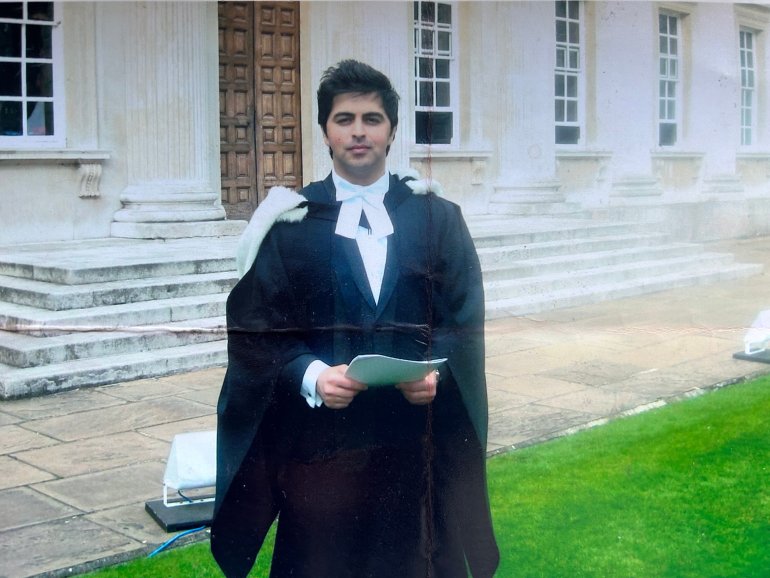
The doctor in Peshawar
After that morning’s exercise, Waheed sits in his living room, soft winter light streaming in through the window. Behind him is a large wooden toy kitchen for his children Zane, 7, and Alana, 4. There are family photographs all around. In the garden outside is a mini-playground with a slide. “In a way,” he says quietly, “I see my own lost childhood when I look at my children.”
In the spring of 1988, when Waheed was five, his father risked being conscripted by the government to fight on the front line, so like some 3.5 million other Afghans, they left for neighbouring Pakistan.
“We travelled on a few donkeys and horses, taking seven days and nights to reach Babu refugee camp,” Waheed says, referring to the temporary settlement for Afghans that lay just outside Peshawar in northwest Pakistan. The journey over mountains and rivers was arduous and dangerous. “We came under attack from helicopter gunships three times,” Waheed recalls.
In Babu, sanitary conditions were poor, and within days, almost everyone all his family had contracted malaria.
After three months, Waheed was coughing so much that he brought up blood. “I could hardly walk,” he says. “That’s when my parents realised it wasn’t the typical cold or flu symptoms that children have.”
His worried father carried him to a pulmonologist in Peshawar, selling some of the gold reserves he had brought to afford the medical fee. The doctor examined Waheed and concluded he had advanced tuberculosis (TB), with just a 20 to 30 percent chance of survival even if he underwent treatment. “My father was in tears, but he was committed to saving me,” Waheed says. He went to the local marketplace and sold antiques they’d brought in order to buy meat, fruit, milk and medicine to help Waheed recover.
As Waheed slowly recuperated, he would still see the pulmonologist, a benevolent man who left a deep impression on Waheed. “I caught his attention because I was always very curious about his job every time I interacted with him,” he chuckles. “One day he gave me a stethoscope and a black-and-white medical textbook, and he said, ‘Son, I think you’ll be a doctor one day. So you’ll need these.’”
Waheed says he knew then that he wanted to become a doctor. “I was determined to also change people’s lives with the same patience and empathy that he showed me,” he explains.

Ambition, flashbacks
In 1991, after the Soviet Union had withdrawn from Afghanistan and during a lull in the fighting, the family returned to Kabul and Waheed formed his plan to become a doctor.
First, he thought, he had to learn English. This was the language of the pulmonologist’s medical textbook. He threw himself into his third grade studies and visited the United Nations Development Programme office in Kabul. There, he argued with the staff to allow him to enrol in their English classes. “They told me that I wasn’t an employee so the course wasn’t for me,” he laughs. “And I started debating with them about the importance of investing in children’s education.”
The office agreed to accept him as a student, and he became one of the first children in their English classes. But this period of stability was short-lived.
In April 1992, fighting broke out once again. Waheed wanted to continue studying but turned up to his school one day to find it had been destroyed by rockets.
Undeterred, he bought English and science textbooks that were being resold on market stalls after being looted from school cupboards.
By the time he was nine, he found himself playing the role of an unofficial neighbourhood doctor. “The health infrastructure had collapsed from years of fighting. There were no facilities, no drugs, no doctors,” he explains.
In Pakistan, he had spent many afternoons at the local pharmacy watching the pharmacist dress wounds. “I also learnt the names of common drugs like paracetamol, ibuprofen and penicillin,” he says. Using this knowledge, coupled with what he gleaned from his medical textbook, he tended to his neighbours’ less severe artillery wounds at home, using bandages improvised from old clothes and pillowcases.
In 1994, the Taliban came to power and gradually the chaos was replaced with an ironfisted rule.
Then, when Waheed was 15, his parents decided to send him to the UK to try to pursue his ambition of becoming a doctor. Meanwhile, despite his stellar grades, he was also experiencing symptoms of PTSD.
“I wanted to sleep all the time, and felt escalating anxiety whenever I had flashbacks of my childhood years,” he says. To calm himself, he would practise what he called a “do-it-yourself” form of cognitive behavioural therapy – which focuses on changing thought and behavioural patterns to manage one’s problems – by quietly reviewing the positive aspects of his life: that he was alive, and doing well academically. And he practised taekwondo.
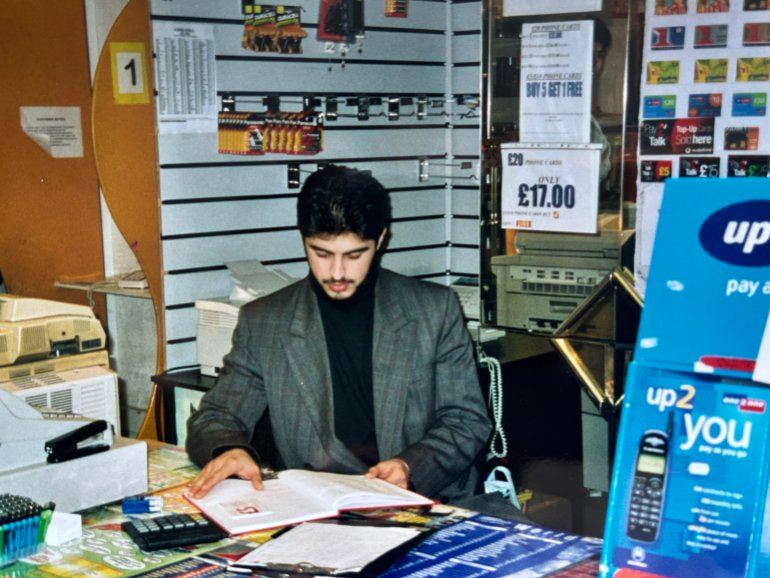
A red tank
In 1999, Waheed left Afghanistan and applied for asylum in the UK where he was initially detained. As he waited three years for asylum to be granted, he juggled three jobs while studying at college. Though he found London exhilarating, his PTSD was worsening.
“As soon as I saw a red bus, it would turn into a tank… Or I’d have nightmares of a sniper taking my head off,” he says.
Only after excelling in his college A Level exams, then going to the University of Cambridge on a scholarship and graduating in 2006, did the mental strain become too much for him to bear. In 2008, experiencing back and shoulder pains and constant nightmares, he went to see a counsellor, who suggested that he had PTSD and anxiety. Therapy helped him to better cope with his symptoms and allowed him to embark on a medical career as a radiologist and emergency doctor.
After a while, he began wondering how he could give back to society.
“I started a telemedicine charity called Teleheal in 2015, which enables doctors in low-resource countries and conflict zones to access advice from volunteer medical experts in the UK, Canada and the US,” he says. Doctors in Afghanistan, Yemen and Syria, for example, connect with their counterparts through WhatsApp and Skype. Teleheal believes almost 700 lives may have been saved between 2016 and 2018 as a result of emergency care advice received via the charity.
“Teleheal taught me that it’s not technology that helps people communicate effectively, it’s compassion,” Waheed says. This made him think about how to harness compassion to help refugees overcome trauma.

‘He gave us hope’
Waheed walks along Chester’s River Dee, which is lined by moss-covered stone walls and red brick homes on both sides.
He is on his way to catch up with Palwasha*, a 33-year-old Afghan woman who is receiving counselling through Arian Wellbeing. The former languages student fled Afghanistan after the Taliban returned to power in 2021.
“I was staying at the Holiday Inn in Chester with around 15 other displaced families when I met Waheed,” says Palwasha, speaking at a cafe.
“In communities like ours where there’s little awareness of mental health, we don’t always realise that physical symptoms can be a sign of depression or anxiety,” Palwasha explains as she cradles a cup of green tea. “I observed that many of the women had headaches, or said they felt fatigued.”
After arriving in Chester, although people were friendly and kind, she missed the liveliness of Kabul. She felt uncertain about her future and found there were days she felt drained of energy.
In April, when Waheed met the families housed at the hotel by the UK government, Palwasha remembers his inviting manner struck a chord with people.
“I thought: He is like us. He came here with nothing. He gave us hope that our lives might be different in the future,” she recalls.
Slowly, through gender-segregated group therapy sessions coupled with stretching exercises, the residents began to open up. “Before we received counselling, we weren’t really talking frankly about how we felt, or what we experienced back home,” she says. “It was really comforting to know that we were all in the same boat.”
Palwasha is about to move on to the next phase of her recovery programme where she’ll do more personalised one-on-one sessions.
She says she is feeling positive about the future. She is about to complete a diploma in mental health studies, reads Afghan poetry in her leisure time, wants to study Japanese, and is in discussions with Waheed about working as an interpreter for other Afghans who sign up for Arian Wellbeing.
Palwasha feels strongly about giving back to the initiative that has helped her.
“We’ve had war in Afghanistan for more than 40 years now,” she reflects. “I think it doesn’t really resonate with people the level of intergenerational trauma that Afghans carry with them. Some people, before coming to the UK, had never even left their province. It’s tough for them to assimilate, and they miss their family. I know I do.”
Training refugees to provide mental health support
Back at home in his study, Waheed has a brief Zoom meeting with Cressida Gaffney, a clinical psychologist with the National Health Service (NHS) who is also part of his team.
She later tells Al Jazeera that the UK health system “assumes a particular starting point for physical and mental distress that doesn’t always map to other cultures”. This is why, she says, Arian Wellbeing places great importance on team interpreters being present to pick up on cultural nuances, and wouldn’t carry out a therapy session without one.
Throughout the week, Waheed also speaks to mental health practitioners from around the world to share know-how. One of the people that he meets online that Friday morning in early December is Hivine Ali, a Bangladesh-based mental health and psychosocial support officer with the United Nations refugee agency UNHCR.
She’s Lebanese, and her parents have been displaced across three different countries. “So I really connect with the issues that refugees face, and it gives me a sense of meaning and fulfilment to help them,” she says.
Currently, along with other UNHCR staff, she’s training 200 volunteers from the Rohingya community to provide mental health support to their fellow refugees. She says that, unlike other refugees who may have a sense of belonging to their home countries, the Rohingya face extreme exclusion as they are not accepted in Myanmar, from where they fled, nor in Bangladesh.
The training programme is giving her and her team cause for optimism, however, with some of the young Rohingya providing mental health support over the phone to their parents in Myanmar. This model Hivine is adopting “to help refugees help themselves” is something Waheed is interested in exploring. They end the call and agree to stay in touch.
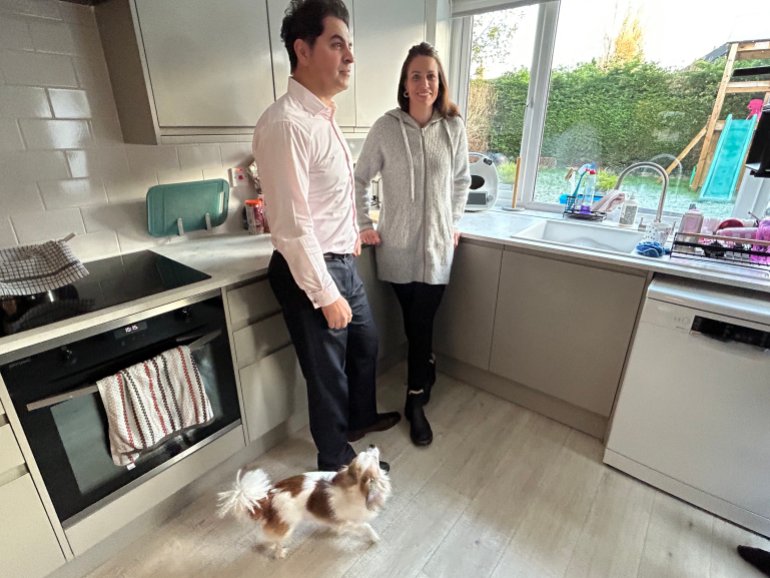
‘I can’t stop’
In the late afternoon, Waheed relaxes in his kitchen with his wife, Davina. Zane is at school, while Alana is upstairs sleeping off an earache.
“I wouldn’t have been able to do any of this without Davina’s support,” Waheed says as he picks up Bruno, one of the couple’s two cats.
“He cares very much about his work, but he knows that if he’s feeling stressed about something, he can always talk to me,” Davina says.
Waheed travels often to speak about his work and published a memoir in 2021 hoping his story might help others.
Tomorrow, he has a rare day off from his multiple jobs and is excited to spend time with the children and order takeout. “Davina and I really love food,” he says, reminiscing about how the two had their first date in an Indian restaurant. “It’s true what people say, if you don’t love food, you probably have no appetite for life.”
Although Waheed will be back at the A&E ward on Sunday, he knows that the time spent with his family will give him the energy to continue.
Like the pulmonologist in Peshawar who inspired him so many years ago, “My life now really is just dedicated to giving people a message of hope, of resilience, of never giving up,” Waheed says. “I’m so privileged to be where I am, so I can’t stop.”
*Name changed to protect the interviewee’s identity.
This article has been produced with the support of UNHCR.
Check out our Latest News and Follow us at Facebook
Original Source


